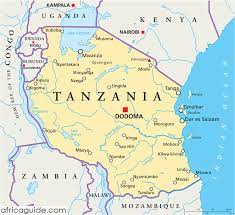On a bustling Saturday in Tanzania, the streets brim with anticipation. In every corner café, eyes are glued to the television screens, and in the homes, families gather, all awaiting the kickoff of a much-anticipated football match. This typical scene in Tanzania is a testament to the nation’s deep-seated passion for football—a sport that has long transcended being a pastime. In these moments, amid the cheers and the collective suspense, the unifying spirit of football truly shines.
Football in Tanzania is more than a game; it’s a cultural phenomenon that brings people from all walks of life together. In recent years, this unification has been further bolstered by the advent of online betting platforms like BetPawa. These platforms have not only heightened the excitement around football matches but have also become a part of the football culture. Fans, eager to test their knowledge and intuition, are often interested in how to deposit BetPawa. The process is straightforward and accessible via a smartphone or computer, allowing fans to participate from anywhere, whether it’s a local bar in Dar es Salaam or a rural home in the shadows of Mount Kilimanjaro.
Historical Overview of Tanzanian Soccer
The history of soccer in Tanzania is a fascinating narrative that intertwines with the nation’s cultural and political evolution. The sport was introduced during the colonial era, primarily by British colonialists in the early 20th century. Initially a leisure activity for the colonizers, soccer rapidly gained popularity among the local population, transcending its colonial roots to become a beloved national pastime.
In the years following its introduction, soccer in Tanzania was largely unstructured, characterized by impromptu matches in open fields. These early forms of the game were more about community participation than competitive sports. However, as enthusiasm for soccer grew, so did the need for organization. This led to the formation of the first soccer clubs, often divided along ethnic or occupational lines, reflecting the segregated nature of colonial society.
Post-independence, soccer became a symbol of national identity and unity. The government, recognizing the sport’s potential as a unifying force, supported the formation of structured leagues. This period saw the birth of the National Football League in the 1960s, later known as the Tanzania Mainland Premier League. This league brought together the top teams from across the country, serving as a platform for showcasing local talent and fostering a competitive spirit.
The Structure of Tanzanian Soccer Leagues
The structure of Tanzanian soccer leagues has evolved significantly since those early days. Today’s league system is well-organized, offering a pathway from grassroots soccer to professional play.
- Tanzanian Mainland Premier League: At the pinnacle of the structure is the Premier League, the country’s top professional league. It comprises the best teams in Tanzania, competing annually for the national championship. The league has grown in professionalism and popularity over the years, with clubs like Simba SC and Young Africans SC attracting massive followings.
- First Division League and Second Division League: The First and Second Division Leagues are below the Premier League. These leagues serve as feeder systems for the Premier League, with promotion and relegation mechanisms in place.
- Regional and District Leagues: The regional and district leagues are further down the structure. These leagues play a vital role in grassroots football, enabling players from various parts of the country, including remote areas, to participate in organized football.
- Women’s Football League: In recent years, women’s football has also gained prominence in Tanzania. Establishing a women’s women’s league has been a significant step in promoting gender equality in sports and providing opportunities for female athletes.
The leagues are governed by the Tanzania Football Federation (TFF), which oversees the overall management, including organizing fixtures, enforcing rules, and promoting football development at all levels. The TFF’s role extends to nurturing young talent through youth leagues and development programs, ensuring a steady influx of talent into the national pool.
This structured league system has been instrumental in elevating the standard of soccer in Tanzania, providing a clear pathway for players to progress from local fields to the national and even international stage. It has nurtured talent and fostered a deep sense of community and national pride, with local clubs often serving as beacons of local identity and pride. The vibrancy and passion within these leagues are a testament to the unifying power of soccer in Tanzania, bringing together people from diverse backgrounds in their love for the beautiful game.
Challenges and Progress
The journey of Tanzanian soccer has not been without its challenges, yet the progress made in recent years is a testament to the resilience and passion of those involved in the sport.
Infrastructure and Funding: One of the primary challenges facing Tanzanian soccer is the need for adequate infrastructure. Many football grounds and facilities need significant improvements to meet international standards. This infrastructural deficit hinders the development of players and the hosting of major tournaments. Funding, or the lack thereof, is another critical issue. Limited financial resources mean clubs often need help to afford quality training equipment, pay player salaries, and invest in youth development programs.
Talent Development and Management: While Tanzania is abundant in raw talent, the development and management of this talent have been areas of concern. Inconsistent training programs, lack of exposure to higher levels of play, and limited scouting opportunities have often prevented promising players from reaching their full potential. Moreover, management issues within clubs and governing bodies have sometimes led to inefficiencies and conflicts, hindering the sport’s growth.
Progress: Despite these challenges, Tanzanian soccer has made notable strides. The increasing involvement of the private sector and international partnerships has brought much-needed investment and expertise. Clubs are gradually becoming more professional in their management and operations, attracting better sponsorships and media coverage. The government, too, has recognized the importance of sports in national development, leading to more support for infrastructure development and youth engagement programs.
Grassroots Initiatives: Grassroots initiatives have been pivotal in nurturing young talent nationwide. These programs focus on soccer skills and emphasize education and personal development, ensuring a holistic approach to youth training.
The International Arena
While still in a developmental phase, Tanzanian soccer’s presence internationally has shown moments of promise and potential.
National Team Achievements: The Tanzanian national team, the Taifa Stars, has had sporadic successes in international tournaments. Their participation in competitions like the African Cup of Nations (AFCON) has provided invaluable experience and exposure to the players. Although they have yet to impact the continental stage significantly, each appearance is a step towards more significant achievements.
International Players: The increasing number of Tanzanian players venturing abroad is a positive sign of the growing reputation of Tanzanian soccer. Competing in leagues across Africa, Europe, and Asia, these players serve as ambassadors of Tanzanian talent, inspiring young players back home and attracting international attention to Tanzanian soccer.
Women’s Football: Women’s football in Tanzania is also gaining international recognition. The participation of Tanzanian women’s teams in regional and continental tournaments is not only breaking down gender barriers in sports but also elevating the status of women’s football in Tanzania.
Future Prospects: Looking ahead, the focus for Tanzanian soccer in the international arena is on consistent performance and broader participation. Efforts are being made to strengthen the national teams through better training facilities, international friendlies, and exposure to different playing styles. The goal is establishing Tanzania as a regular participant in major international tournaments and a competitive force in African football.
In conclusion, while challenges remain, the progress in Tanzanian soccer is undeniable. With continued investment, improved infrastructure, and a focus on talent development, the future of Tanzanian soccer on the international stage looks promising. The sport’s potential to unite and inspire a nation is immense, and with each step forward, Tanzanian soccer moves closer to realizing its full potential on the global football map.
Conclusion
The journey of Tanzanian soccer, rich in diversity and complexity, mirrors the nation’s path through history and culture. From the early days of informal matches to the structured leagues of today and onto the burgeoning presence on the international stage, soccer in Tanzania has evolved into more than just a sport—it has become a vibrant part of the nation’s identity and a powerful unifier across diverse communities.
Facing challenges such as infrastructural needs, funding limitations, and talent management, the stakeholders of Tanzanian soccer have shown resilience and ingenuity. The progress made in recent years—whether through the professionalization of clubs, the emergence of grassroots programs, or the increasing involvement of the private sector and government—highlights a collective commitment to nurturing and elevating the sport. These efforts have not only enhanced the domestic leagues but have also begun to make a mark internationally.



